Is the US just a 'paper tiger' or is she able to derail China's progress?
Even though the countries are in a state of "non-war", US-China tensions will not go away, says Chinese scholar Deng Qingbo. The US can only be expected to continue using China as a bogeyman even after the presidential election. While he is confident that China will be able to handle containment measures thrown at it deftly, he warns that it needs to guard against being increasingly withdrawn from the world as it nurses its bruises from its battles with the US. Failing to do so would only mean the US has succeeded in thwarting its goal of greater reform and opening up.
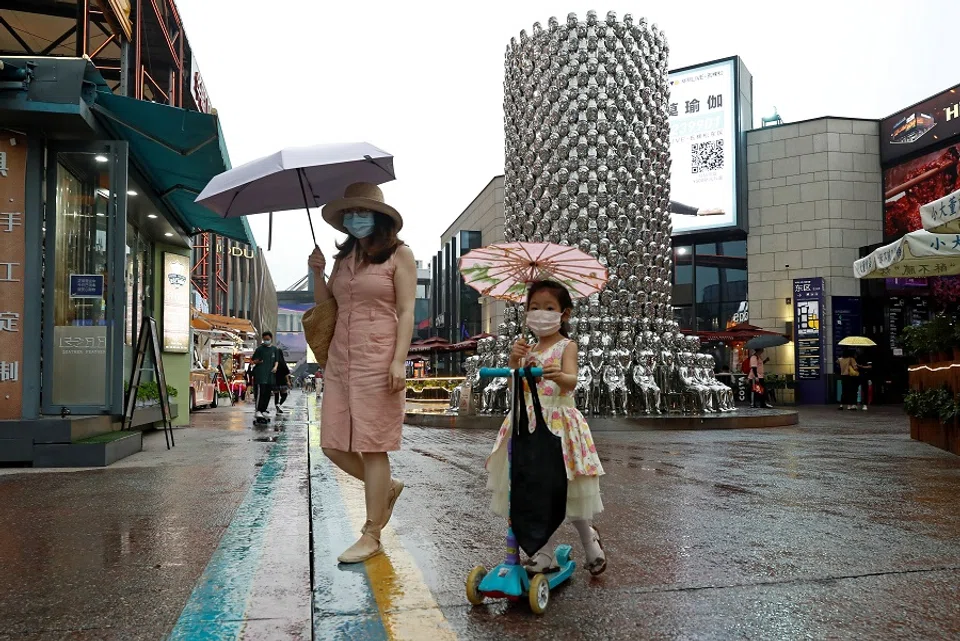
As the antagonism between China and the US gets worse by the day, the international community is watching to see if the two countries will slide into a new Cold War. I continue to hold the view that both sides will not enter a "hot war" or start a new Cold War. Instead, they will remain in a "non-war", that is, where there is no outright war but a state of discord and hostile relations persist. Nonetheless, for some time to come, the possibility of relations getting worse and the accidental sparking of a conflict remain quite real. In view of various factors such as the presidential election campaign, populist sentiments, and the tendency to shift blame to divert attention from internal conflicts, we can only expect that the US will take tougher containment measures against China, regardless of whether a Democrat or a Republican candidate eventually becomes the next president.
US set to contain China further
Already, the US is ramping up its efforts to contain China. From US military planes gathering intelligence near the Chinese coastline to the US health and human services secretary's visit to Taiwan - there is just no lack of high-risk manoeuvres that raise worries of sparking off a major China-US showdown.
During former President Barack Obama's time, America tried to take advantage of China's precarious geographical situation by getting the Philippines, Vietnam and India to help contain the Asian colossus in its stead. When these countries did not fall for the trick, the US took up arms itself and sent military vessels directly to China's doorstep. Today, the US has progressed to showing a total disregard for decorum, and discarding any guise of democracy, freedom and rule of law: it put a barefaced blockade on Huawei, plundered China-backed enterprises like TikTok, and openly articulated its China policy in Cold War language. We can say that Uncle Sam is getting increasingly desperate, its intent to strike down its rival more and more blatantly evident.

China's former leader Mao Zedong once asserted that "imperialism and all reactionaries are paper tigers". He maintained that one should "despise the enemy strategically and take full account of him tactically". Perhaps that is why commentators in China's academic circles and among the public have largely dismissed these actions, saying that despite the viciousness of these moves and America's enormous strength, there is nothing to be afraid of.
Militarily, the US holds the absolute advantage, but since it has to deploy forces everywhere to maintain its global hegemony, its strength is as divided as its armaments are abundant.
Chinese taking US offensive calmly
A look at different factors tells us why. Politically, the US is currently embroiled in a heated bipartisan struggle and a chaotic situation, whereas China is showing a growing stability. No wonder when US Secretary of State Mike Pompeo sought in his speech to spur the Chinese people to turn their backs on the Chinese Communist Party, his efforts at instigation were scorned as ignorant by scholars.
Diplomatically, the American attempt to get other countries to join in a global coalition against China still sees limited success. Not only has it failed to drive a wedge between China and Russia, even European allies like Germany and France are reluctant to follow America's call blindly. Economically, China's economic aggregate now amounts to more than half of America's. The two countries are even neck and neck in terms of purchasing power parity. Furthermore, in the midst of the ongoing coronavirus pandemic, China has taken the lead in resuming work and production. Being ahead on the road to recovery puts China in a better position than the US.
As for public opinion, the Trump administration's unilateralism is much criticised internationally, and the US has already lost the moral authority to rally the world, thanks to what it has done in the recent years. Militarily, the US holds the absolute advantage, but since it has to deploy forces everywhere to maintain its global hegemony, its strength is as divided as its armaments are abundant. And let's not forget: China is a nuclear power too. Although nowhere near the size of America's, its nuclear arsenal still suffices to snuff out any thought on the Western superpower's part of taking risks with an incursion.
The more America lunges forward aggressively and rushes to the frontlines of containing China, the more it will show itself to be unpopular, running out of ideas, and indeed, a "paper tiger" in Mao Zedong's book.

In view of the foregoing, even if America's containment measures continue to escalate, going from straightforward trade friction to all-out suppression, China will still be able to remain calm and deal with every single attack thrown at it. The more America lunges forward aggressively and rushes to the frontlines of containing China, the more it will show itself to be unpopular, running out of ideas, and indeed, a "paper tiger" in Mao Zedong's book. Even in America, there is public criticism of the government's China policy. The critics understand that, by abandoning the policy of engagement with China and opting for all-out containment instead, the US is only exhausting itself in fruitless labour, and possibly even dragging both countries into the trap of mutual antagonism. They can see that this does not serve America's fundamental interests.
Malicious intent behind containment measures will still prove lethal
Well, then, does this mean that America's China containment policy will really all be ineffectual and totally not dangerous?
The truth is, the danger of such a policy lies not only in the superficial aggressiveness and hostility or in the specific moves made, but in the malicious intent hidden within. It is clear that from the political to the military realms, concrete steps taken by the US towards containment and picking a fight may all be successfully neutralised by China. Even when some of them cannot be neutralised for the time being, the harm done to a major power like China would be very limited. The recent series of punitive actions taken by the US against Hong Kong, for example, is seen to have very limited effect.
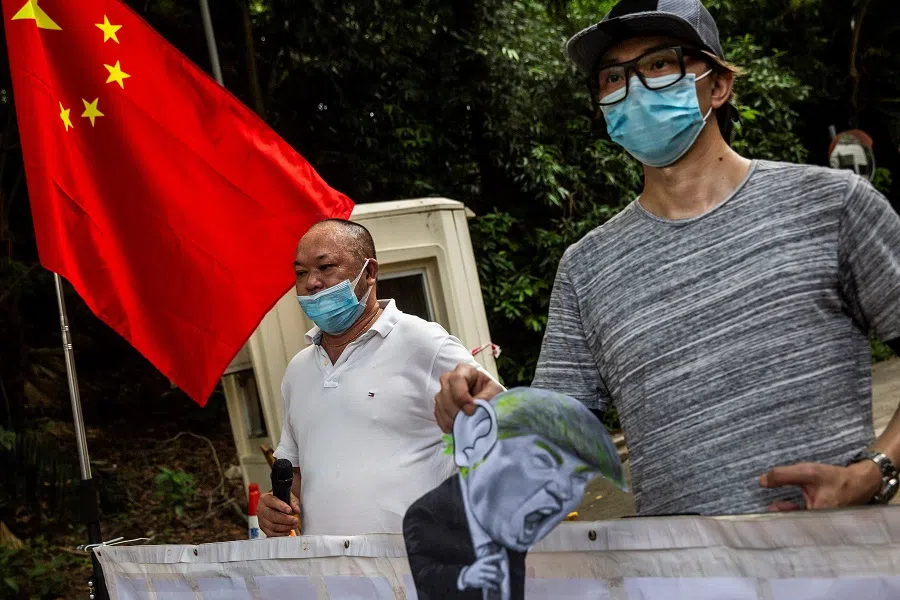
Having said that, the true danger that America's moves present is really much more complicated. The US's containment measures are set to create a strong atmosphere of enmity towards China, which would profoundly affect the Chinese social psyche. The idea is to cause the Chinese society to constantly raise its level of wariness, possibly leading to the emergence of what is known as "involution". The term originated from American anthropologist Clifford Geertz's book Agricultural Involution: The Processes of Ecological Change in Indonesia. It refers to the phenomenon whereby a social or cultural pattern, having taken on an established form at a certain stage of development, stagnates or fails to transform into a new, advanced pattern.Such a roundabout psychological assault is what constitutes the deadliest aspect of America's China containment policy.
In his book Culture, Power and the State: Rural Society in North China, 1900-1942, Prasenjit Duara, a professor emeritus at the University of Chicago, put forth the idea of "state involution". State involution happens when the machinery of the state relies not on elevating the effectiveness of existing (or newly added) agencies, but on replicating or expanding an inherited pattern of state-society relations to expand its administrative functions. In a nutshell, it means there is no increase of effectiveness in any true sense but just a regression into conservatism and self-isolation.
China has to guard against 'state involution'
Historically, at the end of the US-Soviet struggle for hegemony, the USSR was arguably brought to its end by involution to a certain extent. Along the clearly drawn lines of the Cold War, the Soviet Union and its followers heightened their wariness of the West without limit, erecting "Berlin Walls" of all sorts, tangible and intangible, to block off incoming flows from the other side. The result was self-isolation, a state of stagnant adherence to the old ways. Through lapsing into involution, many of the problems arising from internal governance failed to be solved for a long time and got worse over the years.
...the Chinese people gradually lose their enthusiasm and optimism towards the world outside. They may become overly wary and blind to various aspects of the US and other Western countries that are still ahead of their country, and cease to keep an open mind and learn from them with humility.
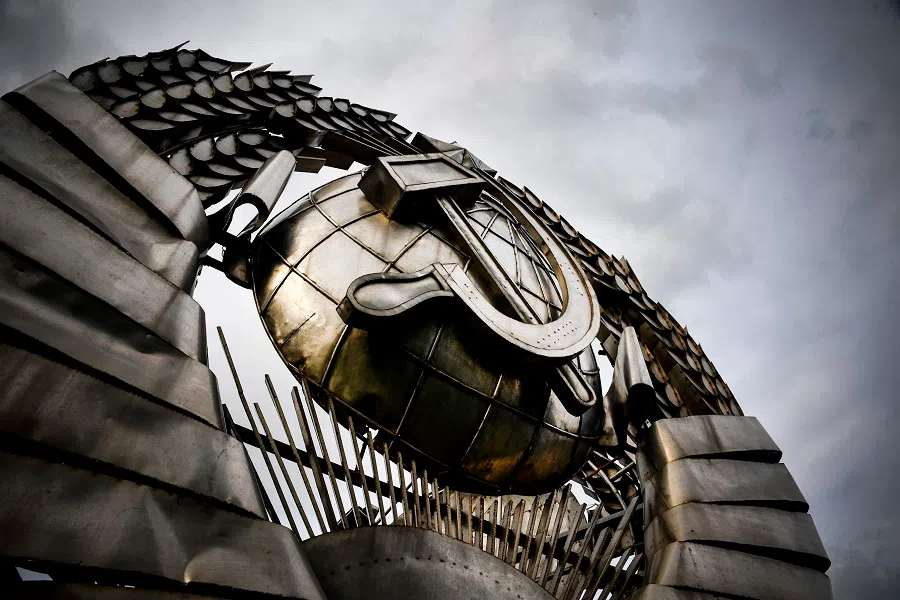
By the time Gorbachev sought to break the impasse, there could only be a blind grasping at straws, which only sped up the fall of the colossal Union. Gorbachev himself was a product of the Soviet regime's involution. When we look further back in time, we see that China's Qing dynasty had also succumbed to involution. Out of its fear of the West, the Qing chose to close itself off from foreign access, hoping to sustain the rule of the "celestial empire" this way. And the end result, as we know, was progressive ossification, falling behind the rest of the world and getting beaten.
Presently, as the US increases its containment measures against China and strives to recreate an external environment similar to what the USSR had to deal with, China needs to prevent itself from making the same mistake as the Union. It must not allow the trend of involution to emerge in the social psyche. The trend may manifest in the following two ways: firstly, due to a deteriorating external environment and rising nationalistic sentiments within the country, the Chinese people gradually lose their enthusiasm and optimism towards the world outside. They may become overly wary and blind to various aspects of the US and other Western countries that are still ahead of their country, and cease to keep an open mind and learn from them with humility.
Secondly, out of the need to counter America's suppression and instigation, the Chinese people may become more inclined to acknowledge the superiority of their own country's social governance, and to be more tolerant to the many imperfections and problematic conflicts that still exist therein, or even turn a blind eye to such negative aspects. In doing so, they would weaken their own courage and passion for reform. In other words, the zest and initiative of the general populace towards reform and opening up would be bruised. And that, I fear, would be the greatest achievement of America's China containment policy.
...should America's containment policy manage to entice or compel the Chinese to lose their faith in and passion for reform and opening up, it would be tantamount to fundamentally blocking off China's pathway of peaceful development.
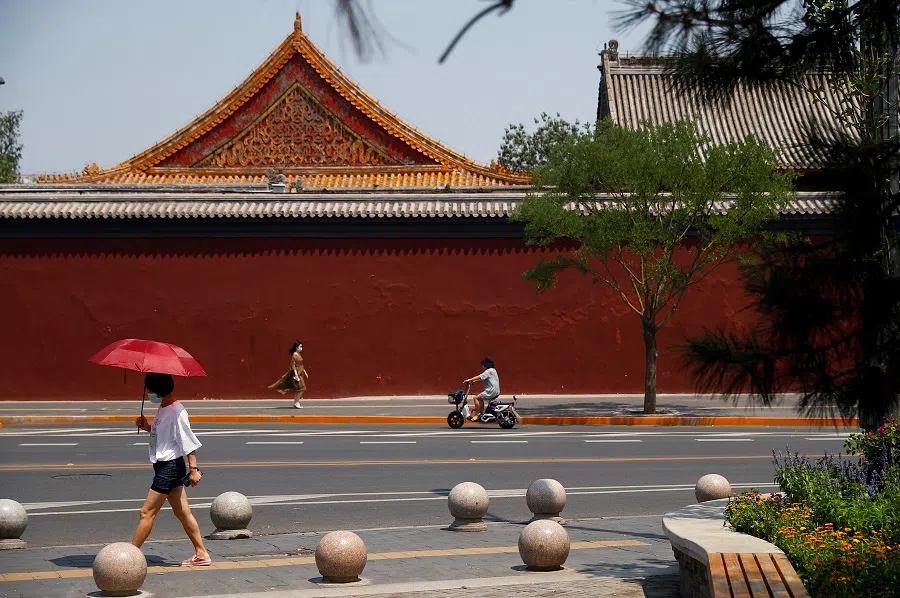
China must not be swayed from its path of reform and opening up
We have to understand this: just as China is good at handling issues on the strategic and tactical level, America's China containment policy may also be driven by malicious intent on the same two levels, one strategic and the other tactical. Specific measures on the political, economic, diplomatic and military fronts actually function only on the tactical level, meant to cause short-term, superficial interference. Creating an atmosphere of all-round China-containment, causing the Chinese to become suspicious of and hostile towards the world outside and thereby move towards involution - perhaps it is this that is the deep strategy behind America's China containment policy.
After all, reform and opening up constituted the critical choice that enabled contemporary China to come into its own so quickly. We may say this is the necessary path for China to revive itself and fulfil its dream of becoming a powerful nation. For this reason, should America's containment policy manage to entice or compel the Chinese to lose their faith in and passion for reform and opening up, it would be tantamount to fundamentally blocking off China's pathway of peaceful development. In other words, the Asian powerhouse's way to sustenance and vitality would be cut off. It is this that spells the deadliest strike being delivered to China!
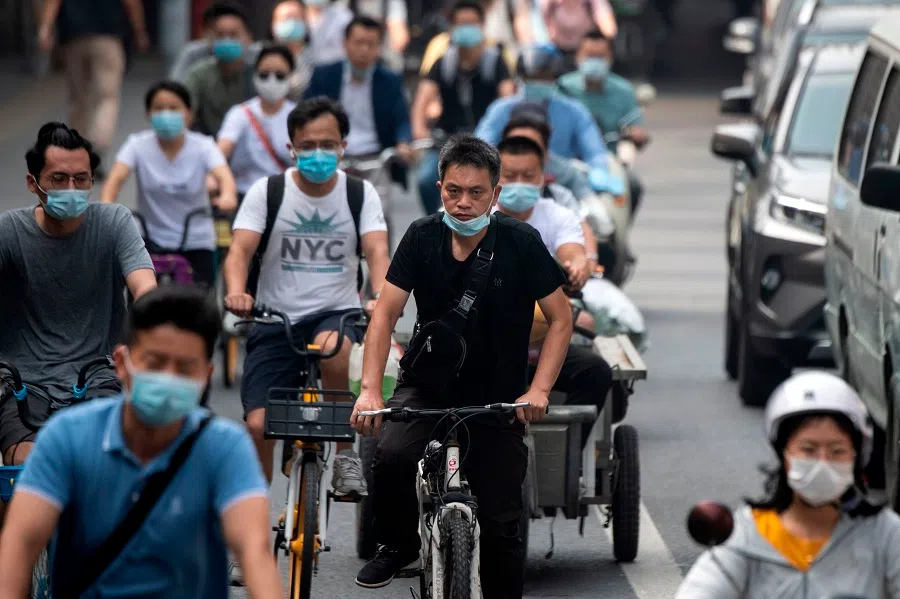
Therefore, in the face of America's all-out containment policy, China must not only counter every specific attack thrown at it, but also maintain a strong strategic forbearance across its entire society - that is to say, stick firmly to the course of reform and opening up without wavering. The more the US imposes blockades, the more China needs to speed up the expansion of its opening-up to break through. The more the US hems it in, the more China needs to quicken the deepening of its reform to strengthen itself.
Fundamentally speaking, China's path of reform and opening up is good for everyone. They not only help to enhance and protect the interests of the Chinese people's livelihoods, but also facilitate the achievement of mutual benefits and win-win outcomes with other countries around the world. They represent a course of action that truly draws much support for being in the right and in step with the times. As long as China keeps at its reform and opening up efforts, the US can never start a new Cold War. In the long run, as the game between the two great powers continues, time and advantage are certainly on China's side.
Related: From a Marxist perspective, the China-US Cold War is inevitable | Is China the old Soviet Union? | Banning TikTok and WeChat: Is the US afraid of competition? | The return of Mao-era practices: New threat to China's political and economic modernisation | China must endure the storm, for time is on its side


![[Big read] When the Arctic opens, what happens to Singapore?](https://cassette.sphdigital.com.sg/image/thinkchina/da65edebca34645c711c55e83e9877109b3c53847ebb1305573974651df1d13a)


